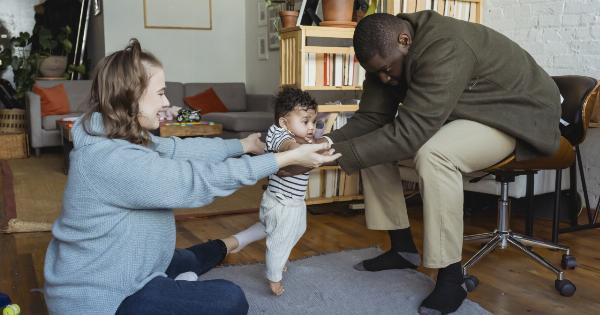Dogs, just like humans, are greatly influenced by their environment.
While genetics play a significant role in shaping a dog’s temperament and behavior, the environment in which they live and grow also plays a crucial part in shaping their personality. From the moment they are born, dogs are exposed to a variety of stimuli that can have a lasting impact on their development and overall demeanor.
In this article, we will explore how the environment influences your dog’s personality and what you can do to create a positive and nurturing environment for your furry friend.
1. The Role of Early Socialization
One of the most critical periods in a dog’s development is the first few months of their life. During this time, they undergo a process called socialization, which involves exposure to a wide range of people, animals, sounds, and experiences.
Proper socialization during this period is essential for shaping a dog’s personality and preventing potential behavior problems.
A well-socialized dog is more likely to be friendly, confident, and adaptable in various situations. They tend to be comfortable around strangers, other dogs, and unfamiliar environments.
On the other hand, a dog that lacks proper socialization may develop fear, anxiety, and aggression issues.
As a responsible dog owner, it is crucial to expose your puppy to as many positive experiences as possible during their socialization period.
Introduce them to various people, both adults and children, and allow them to interact with other dogs in a controlled and safe manner. Exposing them to different environments, sounds, and objects will help them become well-rounded and confident adult dogs.
2. The Influence of Training and Reinforcement
The way we train and reinforce our dogs’ behavior also plays a significant role in shaping their personality.
Positive reinforcement training methods, such as using treats, praise, and affection, are widely considered the most effective and humane approach to training dogs.
When dogs are trained using positive reinforcement, they learn to associate good behavior with rewards. This helps them develop a positive outlook on life and encourages them to display desirable behaviors more frequently.
On the other hand, aversive training methods that rely on punishment and harsh corrections can lead to fear, anxiety, and aggression problems in dogs.
Training not only helps shape a dog’s behavior but also enhances their overall cognitive abilities.
Mental stimulation through obedience training, puzzle toys, and interactive games can improve a dog’s problem-solving skills and boost their confidence.
3. The Impact of Environmental Enrichment
Providing an enriched environment for your dog is essential for their mental and emotional well-being. Dogs, especially those left alone for long periods, can easily become bored, frustrated, and stressed.
An enriched environment helps prevent these negative emotions and keeps dogs engaged and happy.
Enrichment can come in various forms, such as interactive toys, puzzle feeders, and regular exercise and playtime.
These activities not only provide mental stimulation but also help release pent-up energy and prevent destructive behaviors that may arise from boredom.
Additionally, exposing your dog to different environments and experiences can help them adapt to new situations more easily.
Taking them on walks in different neighborhoods, visiting new places, and providing them with novel experiences can broaden their horizons and make them more confident and well-adjusted.
4. The Role of Human Interaction
Human interaction is a crucial aspect of a dog’s environment. Dogs are social animals and thrive on companionship and interaction with their human family members.
Positive and nurturing human interaction is vital for building a strong bond with your dog and shaping their personality.
Spending quality time with your dog, engaging in activities such as walking, playing, and training, helps build trust and strengthens the bond between you. It also provides an opportunity for continuous socialization and reinforces positive behaviors.
On the other hand, neglect or negative interaction can have detrimental effects on a dog’s personality. Lack of attention, social isolation, and mistreatment can lead to anxiety, fear, and aggression issues.
It is crucial to treat your dog with kindness, respect, and patience, ensuring they feel loved and secure in their environment.
5. The Influence of Other Pets in the Household
If you have other pets in your household, they can significantly influence your dog’s personality. Dogs are highly social animals and can learn from observing and interacting with other animals.
Having well-behaved and socialized pets can serve as positive role models for your dog, helping them learn acceptable behaviors and appropriate social interactions. They can teach your dog valuable lessons in communication, play, and sharing resources.
However, it’s important to ensure that all interactions between your pets are supervised and positive. Negative experiences or conflicts between pets can lead to fear and aggression problems in dogs.
6. The Impact of Routine and Stability
Dogs thrive on routine and stability. A consistent daily routine provides dogs with a sense of predictability and security, which can greatly influence their overall temperament and behavior.
Try to establish a routine for feeding, exercise, playtime, and rest. Dogs appreciate knowing what to expect and feel more relaxed when their daily activities follow a predictable pattern.
Maintaining stability in their environment also helps prevent stress and anxiety, contributing to a more balanced and well-adjusted personality.
7. The Influence of Previous Experiences
A dog’s personality can be influenced by previous experiences, especially those involving trauma or abuse. Dogs that have undergone negative experiences in the past may display fear, anxiety, and aggressive behaviors as a result.
If you adopt a rescue dog or a dog with a troubled past, it is crucial to provide them with a supportive and understanding environment.
Patience, positive reinforcement, and professional assistance, if needed, can help them overcome their past and develop a more confident and trusting personality.
8. The Impact of Physical Health
A dog’s physical health can also influence their personality. Dogs that are in pain or discomfort may display various behavioral changes, such as irritability, aggression, or withdrawal.
Regular veterinary check-ups, a balanced diet, and sufficient exercise are essential for maintaining your dog’s physical health.
Ensuring that they are free from any underlying health conditions or chronic pain will contribute to a happier and more balanced personality.
9. The Role of Breed and Genetics
While the environment plays a significant role in shaping a dog’s personality, it is important to acknowledge the influence of breed and genetics.
Different dog breeds have distinct personality traits and tendencies that have been selectively bred over generations.
Understanding your dog’s breed characteristics can give you insights into their natural inclinations and help tailor their environment accordingly.
However, it is essential to remember that every dog is an individual, and their environment and upbringing will also greatly impact their personality.
Regardless of breed, providing a loving, supportive, and enriching environment is essential for promoting positive behaviors and a well-adjusted personality in your dog.
10. Conclusion
The environment in which your dog lives and grows significantly influences their personality.
Through proper socialization, positive reinforcement training, environmental enrichment, human interaction, and stable routines, you can help shape a well-rounded and well-behaved dog.
Remember that every dog is unique, and their personality is a combination of genetic predispositions and environmental factors.
By creating a positive and nurturing environment, you can help your dog develop into a happy, confident, and well-adjusted companion.






























